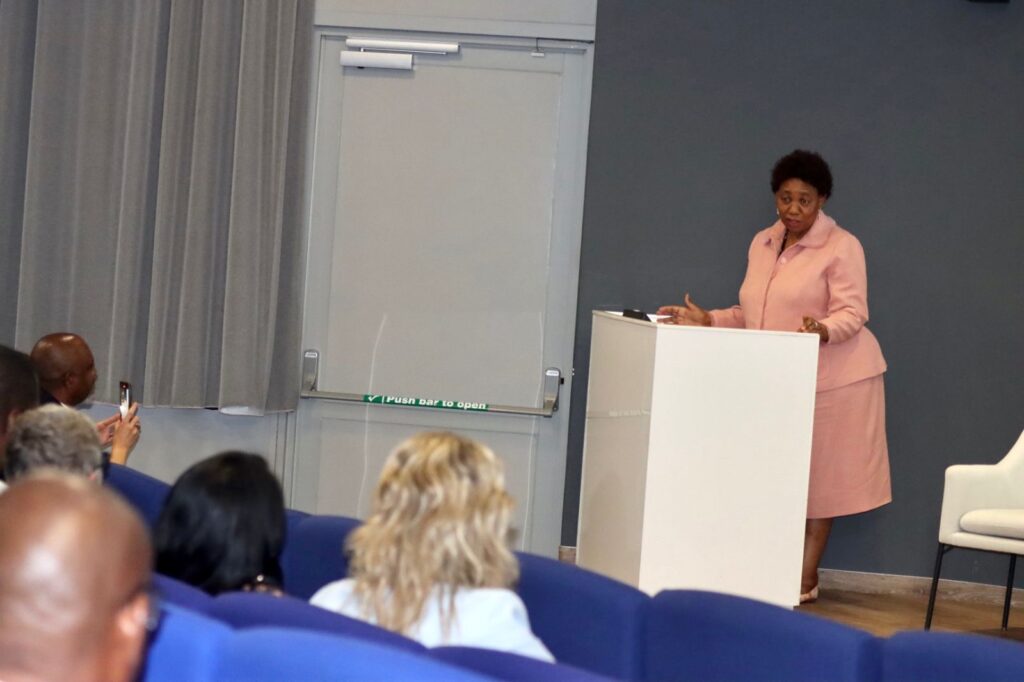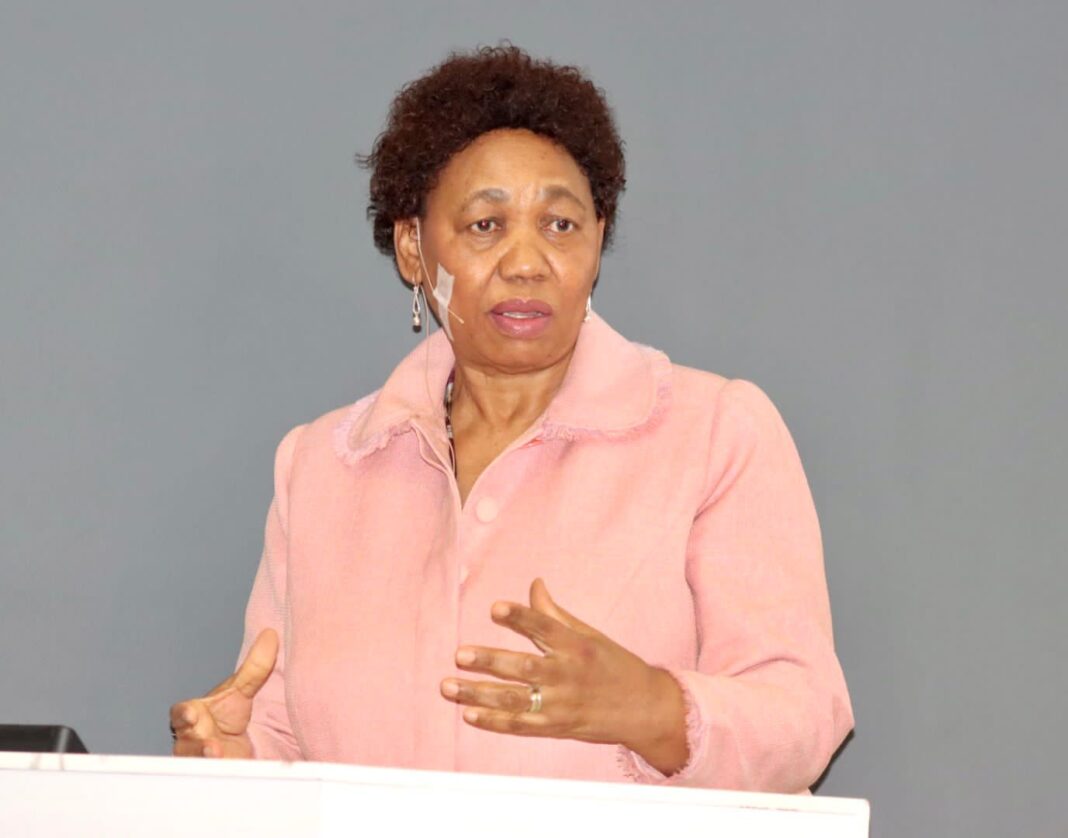Johnathan Paoli
Minister of Basic Education Angie Motshekga on Tuesday launched the Sanlam Foundation Education Programme, an initiative by the Sanlam Foundation and aligned with the NDP 2030 as well the UN’s Sustainable Development Goals (SDGs).
The Minister was joined at the launch held in Sandton, Joburg by the Head of Sanlam Foundation Nozizwe Vundla including DBE and Sanlam Foundation officials.
The main intervention focus for the early childhood development (ECD) and primary school level, which represents the 3 – 9-year-old age group, is on numeracy, reading, and home language development; while for the secondary school level, the focus is on Science, Technology, Engineering and Mathematics (STEM), and Language (English as first additional language – EFAL).

Minister Motshekga said that one of the main aims was to foster an environment of lifelong learning aimed at sculpting learners equipped to navigate the demands of a 21st-century landscape while preserving the vibrant cultural tapestry that defines our nation and to invest in the communities in which they operate to help future generations live with confidence.
“This joint venture seeks to uplift our educational landscape through systemic interventions targeted at quintile 1 to 3 schools, shaping platforms of learning that resonate with international standards and inclusivity,” Motshekga said.
The programme is expected to reach 1,403 pupils and 40 teachers across 20 ECD centres and 14 primary schools in KwaZulu-Natal, Western Cape, Eastern Cape and Gauteng and will be scaled up and refined once Sanlam starts receiving monitoring and evaluation (M&E) data.
Since 2011, the Sanlam Foundation has invested more than R652 million in education, financial literacy, health (HIV/AIDS), water security, enterprise and supplier development initiatives, and employee volunteerism.
Vundla said the programme is anchored by a theory of change and measurable outcomes that are regularly reported on and centred around important pillars which include nutrition, teacher and principal training to ensure robust numeracy and literacy skills are embedded early, prioritising the use of home languages, psycho-social support and robotics.
“It’s a commitment for the long term through a pipeline approach, from ECD to primary and secondary school,” Vundla said.
INSIDE EDUCATION



